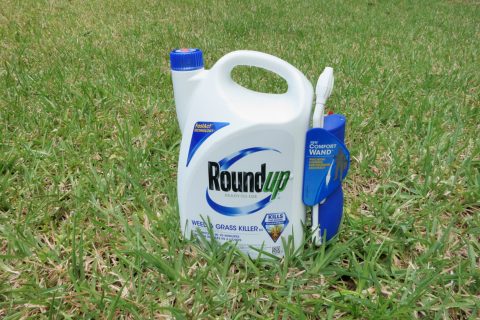Roundup Lawsuit
Roundup lawsuits filed against Monsanto (now Bayer) claim the weed killer caused cancer, and the company failed to warn about the health risks of glyphosate. In 2020, Monsanto agreed to pay nearly $11 billion to settle most Roundup cancer claims, but lawyers are still accepting claims.
- Legally reviewed by Kimm Massey, Esquire
- Last update: July 1, 2025
Am I Eligible To File a Roundup Cancer Lawsuit?
If you used Roundup regularly before being diagnosed with non-Hodgkin lymphoma, you might be eligible to file a lawsuit. People who are most likely to be exposed to large amounts of Roundup over a long period of time are agricultural workers and farmers.
- You were directly exposed to Roundup for a long period or were exposed to large amounts of Roundup at 12 years of age or younger.
- You received a diagnosis of non-Hodgkin lymphoma or another qualifying cancer on June 1, 2018, or after.
- You used Roundup at least two years before your diagnosis.
- The statute of limitations in your state hasn’t passed.
People have filed individual lawsuits seeking compensation for their injuries. Others filed class action claims for reimbursement of the cost of the product. The above criteria are guidelines; only a Roundup lawyer can tell you for sure if you qualify.
The International Agency for Research on Cancer classified the active ingredient that most Roundup formulas used to have, glyphosate, as a “probable carcinogen” in humans. Lawsuits argue that despite this ruling and the studies that link glyphosate and Roundup to non-Hodgkin lymphoma or related cancers, Bayer and Monsanto continued to represent Roundup as safe for humans and the environment.
“Regarding recent lawsuits attempting to link glyphosate to non-Hodgkin lymphoma, it’s essential to understand that while there’s an ongoing debate, some studies suggest a correlation,” Jonathan Rosenfeld, founder and managing attorney at Rosenfeld Injury Lawyers, told Drugwatch. “However, causation isn’t definitively established yet, and legal battles often hinge on proving this link in court.”
- Anaplastic large cell lymphoma
- B-lymphoblastic lymphoma
- Burkitt lymphoma
- Chronic lymphocytic leukemia
- Cutaneous T-cell lymphoma
- Diffuse large B-cell lymphoma
- Extranodal marginal zone B-cell lymphoma, mucosa-associated lymphoid tissue
- Follicular lymphoma and hairy cell leukemia
- Large granular lymphocytic leukemia
- Lymphoplasmacytic lymphoma (Waldenström Macroglobulinemia)
- Mantle cell lymphoma
- Marginal zone B-cell lymphomas
- Mycosis fungoides
- Nodal marginal zone B-cell lymphoma
- Peripheral T-cell lymphomas
- Primary central nervous system lymphoma
- Sézary syndrome
- Small lymphocytic lymphoma
- Splenic marginal zone B-cell lymphoma
Have All Roundup Lawsuits Been Settled?
Although Bayer offered up to $10.9 billion to settle thousands of Roundup personal injury claims in 2020, thousands of cases are still pending.
So far, lawyers estimate that Roundup settlement payouts are between $5,000 and $250,000, and the average settlement per plaintiff is $150,000. Keep in mind, no settlement amount is guaranteed. Your case may be worth more or less, depending on the facts in your case.
People could still be diagnosed with non-Hodgkin lymphoma after using Roundup, and there could be future Roundup settlements and jury verdicts for these claimants.
What Are the Latest Roundup Cancer Lawsuit Updates?
So far, Roundup lawsuits against Bayer and Monsanto continue to be filed, and lawyers are still representing clients. Some lawsuits have already been resolved as part of the 2020 $10.9 billion Roundup settlement or in trial.
As of July 2025, there are 4,425 open Roundup lawsuit cases in federal MDL in California.
Timeline of Roundup Cancer Lawsuits
-
June 2025:
The New Jersey Supreme Court has opted to created a multicounty litigation (MCL) for Roundup lawsuits. MCLs are used when many similar lawsuits are pending within a state. This groups those cases together so they can move through the legal process together in a more streamlined effort. When the application to create an MCL was filed in March, 41 cases were pending across the state.
Also this month, the Supreme Court invited the Solicitor General to weigh in on whether the court should hear a Roundup case. Bayer has said that, even with this delay, it still thinks a ruling could come within the next year if the Supreme Court takes the case. -
May 2025:
Bayer is reportedly making a renewed effort to resolve some Roundup lawsuits through another settlement. The company had previously agreed to a $10 billion settlement in 2020, but new lawsuits and big trial wins for plaintiffs continue. The settlement may involve claims in Missouri state court, where thousands of cases are pending.
Also this month, Bayer lost appeals to overturn two Roundup verdicts from 2023. One had awarded $611 million to a group of plaintiffs, while the other had awarded $175 million to one plaintiff.
Earlier this month, Georgia became the second state after North Dakota to sign a law that could significantly shield Bayer from the claims at the heart of many Roundup lawsuits. Similar legislation has been rejected in other states. -
April 2025:
Bayer announced that it has filed a petition to send a Roundup case to the U.S. Supreme Court. Front and center will be the issue of federal preemption, which has seen divided decisions among courts. If the Supreme Court were to side with Bayer, then active Roundup lawsuits that rely on state labeling laws could be in jeopardy.
Also this month, North Dakota became the first state to pass a law shielding Bayer and other manufacturers from some pesticide lawsuits. There are similar bills pending in multiple states, but they may not all see success. The bill in Iowa appears to not be moving forward. -
March 2025:
The latest Roundup trial has ended in a massive verdict for the plaintiff. A Georgia jury awarded about $2.1 billion to John Barnes, who claimed he developed non-Hodgkin lymphoma after 20 years of using Roundup. This is one of the largest verdicts ever awarded to a Roundup plaintiff.
Also this month, the Iowa Senate passed a bill proposed by Bayer that would shield the company from pesticide lawsuits. The bill will now be considered by the Iowa House of Representatives. -
February 2025:
The Iowa Senate has advanced a bill that would essentially prohibit Roundup lawsuits in the state. The bill, which was originally proposed by Bayer, would prevent plaintiffs from bringing failure to warn claims against pesticide manufacturers as long as they followed federal label rules. Similar bills are currently pending across multiple states.
-
December 2024:
The latest Roundup case, Antonou v. Monsanto, has ended in a mistrial after Monsanto’s lawyer referenced a past alcohol-related criminal charge against the plaintiff during cross-examination. Judge Daniel Trevino ruled that the lawyer's line of questioning constituted “serious misconduct." He also cautioned Monsanto against "any further conduct that could result in sanction or a contempt finding."
Plaintiff’s attorneys called for a mistrial because they believe the introduction of criminal charges unfairly prejudiced the jury against the plaintiff. Some plaintiff’s firms have commented online about this behavior, condemning it as a blatant attempt to prejudice the jury. When a judge declares a mistrial, most cases will be tried again later with a new jury. -
November 2024:
The defendants won the latest Roundup trial in the Philadelphia Court of Common Pleas. Plaintiff Judith Womack was diagnosed with non-Hodgkin lymphoma in 2019 after she had been using Roundup for years, starting in 2015. However, the Philadelphia jury sided with Monsanto and determined that the company was not responsible for her cancer. This continues the streak of inconsistency in verdicts for recent Roundup trials.
-
October 2024:
A Philadelphia jury awarded a $78 million verdict to a man who blamed his non-Hodgkin lymphoma on decades-long use of Roundup. William Melissen had used the weed killer regularly since 1992 and was diagnosed with cancer in 2020. This big win turned the tide on what had been a strong few months for Monsanto and Bayer, who will look to appeal the ruling.
-
September 2024:
Bayer secured another Roundup trial win after a Philadelphia jury determined that subsidiary Monsanto’s weed killer was defective but did not cause plaintiff Ryan Young’s non-Hodgkin lymphoma. This was the second victory for Bayer in a month after a Missouri appeals court also upheld a previous win for the company. In that trial, plaintiff Stacey Moore had appealed in part based on the exclusion of his expert’s testimony in the original trial. However, the appeals court affirmed that the expert was not qualified to discuss Roundup’s potential ties to cancer.
-
August 2024:
In a potential blow to plaintiffs, the 3rd U.S. Circuit Court of Appeals in Philadelphia ruled in Monsanto and Bayer’s favor in Schaffner v. Monsanto. The court determined in a unanimous ruling that the Federal Insecticide, Fungicide, and Rodenticide Act (FIFRA) preempts state law. The Schaffners claimed Monsanto violated the state law by not including cancer warnings on labels, but this ruling rejects that claim. This created a circuit split with previous rulings, and Bayer pushed for the issue to be determined before the Supreme Court.
-
July 2024:
Judge Ann Butchart of the Philadelphia Court of Common Pleas upheld Monsanto's only winning trial verdict in that court. This ruling could affect future cases because several rulings regarding evidence shown at trial gave Monsanto the upper hand and disadvantaged plaintiffs. Plaintiffs are appealing this ruling.
An Oregon appeals court overturned a previous Bayer win in a Roundup trial this month. The decision was based on the determination that the trial court committed an error by excluding certain testimony regarding EPA regulation.
In research news, French scientists published a study in Ecotoxicology and Environmental Safety that suggests that glyphosate negatively impacts human reproductive health by contributing to infertility. -
June 2024:
A state court judge slashed the $2.25 billion McKivison verdict for a Pennsylvania man to $400 million dollars. The jury had originally awarded him $2 billion in punitive damages. McKivison’s lawyers say they will appeal to get the original verdict reinstated, and Bayer said it would continue to appeal the decision.
Meanwhile, Bayer was reportedly heavily investing in lobbying efforts to influence Congress in favor of passing a law that would restrict Roundup-related lawsuits. Part of this campaign involved a clause in the Farm Bill, which Bayer helped draft, aiming to limit plaintiffs' claims of being uninformed about the herbicide's health risks. -
May 2024:
Plaintiffs applied to create a Roundup New Jersey Multicounty Litigation (MCL), but judges denied the application. According to the Court, there weren’t enough cases to warrant creating an MCL. An MCL is like an MDL in that it consolidates many cases for efficiency and cost savings.
-
April 2024:
A Missouri court reduced the $1.56 billion verdict from November 2023 to $611 million. This was based on a U.S. Supreme Court decision limiting punitive damages to no more than 9 times the actual damages.
-
February 2024:
The 11th U.S. Circuit Court of Appeals rejected Bayer's argument that the federal labeling requirements for pesticides trump state requirements that they come with a cancer warning. This complicates Bayer's legal strategy in dealing with lawsuits claiming Roundup cancer links.
-
January 2024:
A Pennsylvania jury awarded John McKivison a $2.25 billion verdict after a trial in which he claimed Roundup caused his non-Hodgkin lymphoma — the largest Roundup lawsuit verdict yet. His lawsuit claimed he'd used the weedkiller around his property for 20 years.
-
December 2023:
A jury ordered Bayer to pay $3.5 million to a plaintiff who claimed Roundup caused her to develop cancer.
-
November 2023:
A jury in Missouri awarded $1.56 billion to four plaintiffs who claimed Roundup caused them or their spouse to develop non-Hodgkin lymphoma. Out of about 167,000 lawsuits, 113,000 had been resolved, according to Bayer.
-
October 2023:
A San Diego jury awarded $332 million to a cancer patient after finding Monsanto didn’t adequately warn of the risks of Roundup.
-
June 2023:
Bayer paid $6.9 million to the State of New York to settle claims that it misled consumers about the environmental effects of Roundup.
-
May 2023:
Monsanto won the latest trial in St. Louis, Missouri, against plaintiff Sharlean Gordon. This was the company’s seventh consecutive win.
-
May 2021:
San Francisco Judge Vince Chhabria denied Bayer’s Roundup class action lawsuit offer to settle future Roundup cancer claims for $2 billion. Chhabria deemed Bayer’s $2 billion offer to settle future Roundup cancer claims unreasonable and ordered the parties to present a better offer. “Bayer is a massive, wealthy company, and it continues to make money specifically from Roundup sales. Nor is there any indication that the company will cease its efforts to settle cases,” Judge Chhabria said in his May 2021 order.
-
June 2020:
Bayer offered $10.9 billion to settle about 100,000 Roundup weed killer lawsuit claims.
-
May 2019:
A California state jury awarded $2 billion to a Roundup plaintiff couple.
-
March 2019:
A California state jury awarded $80 million to a Roundup plaintiff.
-
August 2018:
A California state jury awarded $289 million to a Roundup plaintiff.
Despite Bayer offering $10.9 billion to settle most claims, Roundup lawyers are still accepting claims to go to trial or negotiate a potential settlement.
Does Glyphosate Cause Cancer?
People filed Roundup lawsuits because they claimed Monsanto’s herbicide caused their non-Hodgkin lymphoma or related cancers. Monsanto was the original manufacturer of Roundup, but Bayer acquired Monsanto in 2018.
“While we see various injuries, we most commonly see certain types of blood cancers linked to Roundup exposure including non-Hodgkin lymphoma and certain subtypes such as B-cell lymphomas and T-cell lymphomas,” attorney Jo Anna Pollock with Simmons Hanly Conroy told Drugwatch.
Bayer and its subsidiary Monsanto are the primary defendants in thousands of lawsuits consolidated into multidistrict litigation (MDL) in California, claiming that the weedkiller Roundup caused cancer. An MDL consolidates many similar cases from across the country into one court to make litigation more efficient and save costs.
Bayer maintains that Roundup is safe but stopped selling residential formulas with glyphosate, the former active ingredient, in 2023. Commercial formulas with glyphosate remain available.
People who filed lawsuits say Bayer and Monsanto didn’t warn the public about the cancer risks. Injuries in Roundup lawsuits primarily involve non-Hodgkin lymphoma, a cancer affecting white blood cells. However, lawsuits also mention several other related cancers.
Beyond Side Effects: Kathy’s Roundup Cancer Story
Kathy Spreadbury loved caring for plants and watching them grow. As an avid gardener, the Pensacola, Florida, resident once cultivated more than 100 plumerias. But her passion was cut short when she was diagnosed with B-cell lymphoma following exposure to Roundup. After months of treatment and a painful physical decline, Kathy died on Christmas Eve in 2020.

Kathy (L) and sister Sue.
Her family blames Monsanto and Bayer for her cancer. Like many other patients and loved ones, Kathy’s husband of 37 years filed a Roundup cancer lawsuit. As they cherish Kathy’s memory, her family hopes to hold the makers of Roundup responsible.
Glyphosate’s link to cancer is controversial, largely because of differing opinions from regulatory agencies. The World Health Organization classifies glyphosate as a “probable human carcinogen,” while the Environmental Protection Agency disagrees and says Roundup is unlikely to cause cancer in humans.
An independent meta-analysis published in Mutation Research shows a 41% increased risk of non-Hodgkin lymphoma in agricultural workers exposed to large amounts of glyphosate.
“Regarding recent lawsuits attempting to link glyphosate to non-Hodgkin lymphoma, it’s essential to understand that while there’s an ongoing debate, some studies suggest a correlation.”
“Through my legal practice, I’ve witnessed the devastating impact glyphosate exposure can have on individuals and their families, underscoring the importance of addressing this issue comprehensively,” Rosenfeld said.
Bayer maintains that over 800 studies submitted to the EPA confirm that glyphosate “can be used safely and does not cause cancer.”
Monsanto Influenced Studies to Deceive the Public
Lawsuits also claim the company actively deceived the public about Roundup’s safety. The “Monsanto Papers” — a collection of internal declassified corporate communications presented in court — revealed that the company may have hidden Roundup’s cancer link for years. It did this by influencing scientific studies related to the safety of glyphosate.
“[Monsanto Papers revealed] Monsanto-sponsored ghostwriting of articles published in toxicology journals and the lay media, interference in the peer review process, behind-the-scenes influence on retraction and the creation of a so-called academic website as a front for the defense of Monsanto products.”
In an article published in The International Journal of Risk and Safety in Medicine, the author wrote that the papers revealed: “Monsanto-sponsored ghostwriting of articles published in toxicology journals and the lay media, interference in the peer review process, behind-the-scenes influence on retraction and the creation of a so-called academic website as a front for the defense of Monsanto products.”
The website in question, “Academics Review,” has several articles criticizing studies that conclude glyphosate is harmful. According to the journal article, Monsanto allegedly funded the website.
People Who Filed Roundup Lawsuits
Drugwatch has analyzed several Roundup-related cases, including multidistrict litigation and class action lawsuits. Each case is unique, and outcomes vary. Discussing your situation with a lawyer can help determine if you or your family qualify for a Roundup lawsuit.
Donnetta Stephens filed her suit against Monsanto and Bayer in the Superior Court of California in Alameda County in August 2020.
Roundup Usage
Stephens regularly used Roundup to maintain her yard biweekly from 2000 to 2017, from April through September each year.
Injuries Alleged
Stephens was diagnosed with non-Hodgkin lymphoma on Dec. 15, 2017, attributing her illness to Roundup exposure. Her complaint cites significant harm, pain and suffering, physical injury and bodily impairment, including non-Hodgkin lymphoma and other cancers requiring medical intervention.
Relief Sought
Stephens sought compensatory damages from Bayer to cover medical costs and suffering. Additionally, she pursued exemplary and punitive damages against both Bayer and Monsanto for their alleged negligence in the development, testing, manufacture, promotion, distribution, marketing and sale of Roundup, alongside court costs.
Verdict
The jury ultimately ruled Roundup exposure did not reasonably cause Stephens’ cancer in December 2021. Her counsel plans to appeal the decision.
In February 2019, Lisa Jones, Horacio Torres Bonilla and Kristoffer Yee filed a class action lawsuit against Monsanto on behalf of Roundup purchasers. This suit focused on deceptive labeling practices. Plaintiffs sought refunds for Roundup product purchases rather than filing personal injury claims.
Deceptive Labeling Allegations
Plaintiffs accused Monsanto of deceptive labeling regarding Roundup products. The label claimed glyphosate, the active ingredient, targeted only plant enzymes. Plaintiffs argued Monsanto knew the enzyme glyphosate targets is also present in human and animal gut bacteria, rendering the label false.
Proposed Settlement Agreement
An initial settlement proposed a $39.55 million Common Fund, with 25% for attorney fees. Claimants were to receive 10% of average retail prices for products purchased. Any unclaimed funds from the settlement will be distributed to designated cy pres charity efforts.
Cy pres distribution allows the Court to take leftover money from a class action that cannot be given to plaintiffs and give it to a charity that supports the plaintiffs’ cause.
Final Claims and Distribution
In total, class members filed 285,399 claims representing about 1 million products. The value of valid claims reportedly ranged between $11.72 million and $13.34 million. After deducting fees and administration costs, $14 to $16 million remained for cy pres distribution. The proposed charities for the distribution would specialize in services such as ethical advertising and consumer protection.
How Can a Roundup Lawyer Help Me?
An experienced Roundup lawyer can help guide you through the complex process of filing a lawsuit against giant international companies like Bayer and Monsanto. We recommend looking for an attorney experienced in toxic tort and environmental law who has experience in settlement negotiation and trial.
- Tell you if you qualify to file a Roundup lawsuit
- Protect your right to file a lawsuit
- Help gather evidence and prove your Roundup case in court
- File a Roundup lawsuit on your behalf
- Negotiate settlements on your behalf
- Explain the status of Roundup lawsuits
- Prepare you and your case for a potential trial
You can find a Roundup lawyer by signing up for a free case review on Drugwatch, by searching the internet or by contacting your local bar association, which is a voluntary group of lawyers in your area.
Drugwatch partners with award-winning national firms that filed the first Roundup lawsuits in 2015. Our partners have negotiated multibillion-dollar settlements for clients affected by environmental toxins.
“It has been a long journey, but we are very pleased that we’ve achieved justice for the tens of thousands of people who, through no fault of their own, are suffering from non-Hodgkin lymphoma after using a product Monsanto assured them was safe,” Robin Greenwald, firm partner and head of the Environmental Toxic Torts and Consumer Protection Litigation group at Weitz & Luxenberg, said in a press release.

Attorney Kim Massey answers important questions about Roundup lawsuits.
- How can you prove Roundup exposure?
You can prove Roundup exposure by providing receipts of purchases or information from your job about Roundup use and showing proof of non-Hodgkin lymphoma or another related diagnosis. An experienced Roundup lawyer can help you obtain proof for evidence in your lawsuit.
- What is the average payout for a Roundup lawsuit?
Some lawyers have estimated the average payout for a Roundup lawsuit is around $150,000. This amount could be higher or lower depending on the age and injuries of each claimant. An experienced Roundup lawyer can help you determine a potential settlement amount for your case.
- Is it too late to join the Roundup lawsuit?
Getting a free case review about qualifying to join a Roundup lawsuit is still possible. But each state has a statute of limitations, so state laws may limit your time to qualify. In some cases, the statute date may have already passed. Contact an attorney immediately to preserve your right to file a Roundup lawsuit and see if you qualify.
- Is Roundup banned?
No, Roundup is not banned in the U.S., though Bayer has started selling residential formulas without glyphosate as an active ingredient. Commercial formulas with glyphosate for Roundup remain available.
Editor Lindsay Donaldson contributed to this article.
Calling this number connects you with a Drugwatch.com representative. We will direct you to one of our trusted legal partners for a free case review.
Drugwatch.com's trusted legal partners support the organization's mission to keep people safe from dangerous drugs and medical devices. For more information, visit our partners page.






